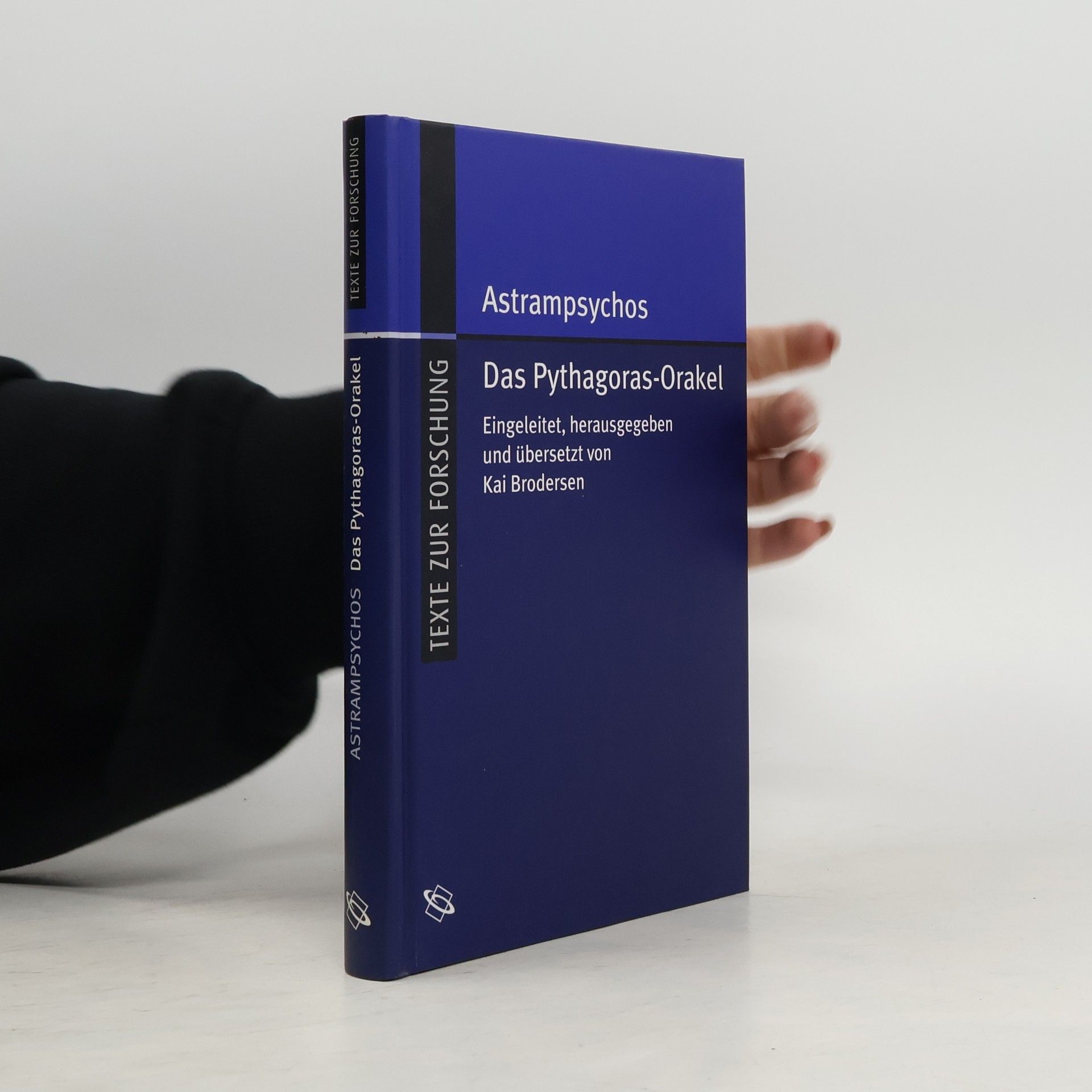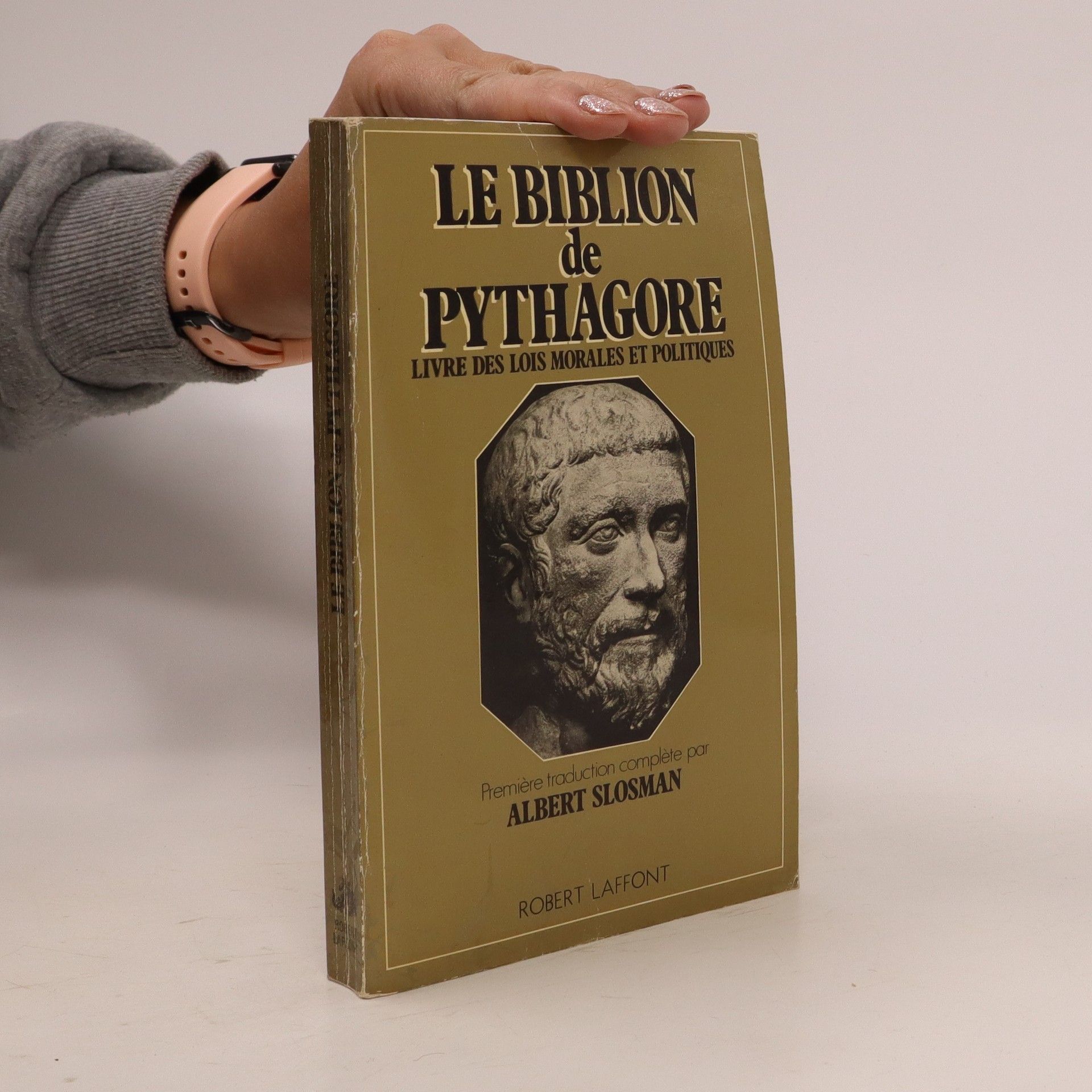Pythagoras Livres
Pythagore fut un philosophe de la Grèce antique dont la renommée transcende les siècles, bien que sa pensée réelle soit enveloppée de légendes. Dans les temps anciens, il était connu non tant pour les mathématiques que pour ses croyances concernant l'immortalité de l'âme et la réincarnation, son expertise en matière de rituels religieux et la fondation d'un mode de vie mettant l'accent sur une discipline personnelle stricte et des restrictions alimentaires. Sa vision du cosmos était structurée selon des principes moraux et des relations numériques, influençant les conceptions ultérieures de l'harmonie des sphères. Pythagore a ainsi laissé un héritage d'une vision nouvelle et plus optimiste de l'au-delà et d'un mode de vie inspirant.




The Golden Verses Of Pythagoras And Other Pythagorean Fragments
- 126pages
- 5 heures de lecture
In this small volume an attempt has been made to gather together the best and most reliable of the sets of Ethical Verses attributed to the Pythagoreans.Both Hall's translation from the Greek (1657), and Rowe's translation from the French of André Dacier (1707), have been used in reproducing the Golden Verses of Pythagoras, but Dacier's version has been almost exclusively followed, being clearer and more intelligible.The Golden Sentences of Democrates, the Similitudes of Demophilus, and Pythagorean Symbols are from Bridgman's translation, and are to be found in his little book, Translations from the Greek, published in 1804. The Pythagorean Sentences of Demophilus, translated by Taylor, are contained in that volume also.The remaining sets of verses, translated by Taylor, are appended by him to his Iamblichus' Life of Pythagoras, published in 1818.
The Golden Verses of Pythagoras
Five Translations: Esoteric Classics
The Golden Verses, a third-century B.C.E. collection of 71 moral exhortations, is crafted in dactylic hexameter and served as a foundational text for Neoplatonist moral instruction. This edition features five distinct translations, allowing readers to explore the timeless ethical teachings and philosophical insights encapsulated in this classic work.
'Werde ich wohlhabend sein?' – 'Werde ich das Verlorene finden?' – 'Kann ich bei dem Geschäft Schaden erleiden?' Klare Antworten auf Fragen wie diese gibt das so genannte Pythagoras Orakel, das wir – neben Schriften über Magische Steine und über Traumdeutung sowie einem Liebeszauber – dem antiken Magier Astrampsychos verdanken. Seine Schriften werden hier erstmals zweisprachig präsentiert und eröffnen einen faszinierenden Einblick in die Hoffnungen und Ängste, in Freud und Leid, in Alltag und Denken der Menschen vor fast zwei Jahrtausenden. Das griechische Orakelbuch Sortes Astrampsychi (so lautet der Originaltitel) stammt aus dem 1. oder 2. Jahrhundert n. Chr. und erfreute sich durch die gesamte Spätantike bis ins Mittelalter großer Beliebtheit.